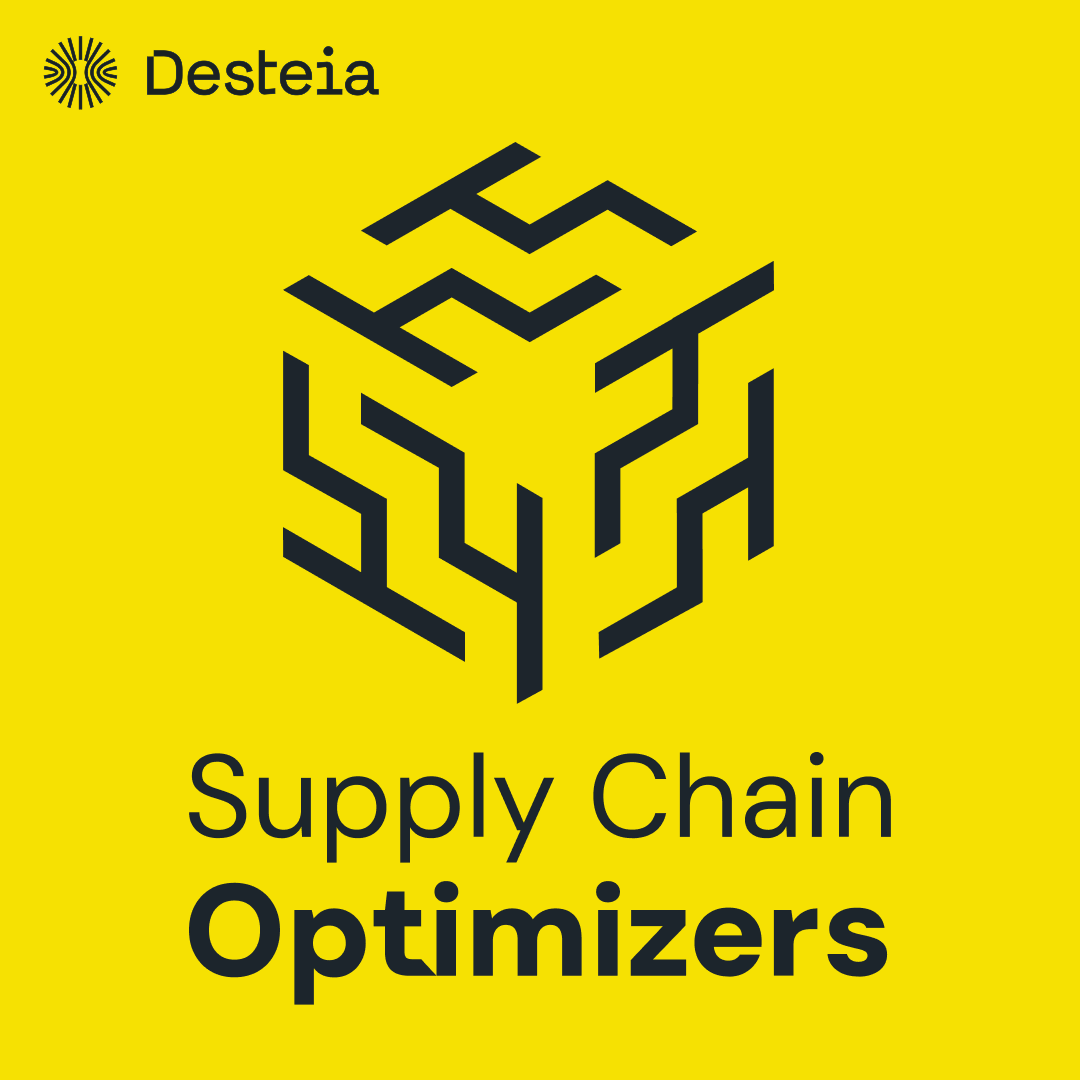Global Logistics Across Borders: Navigating Clinical Trials, Compliance, and Complexity
October 30, 2025

What makes shipping a single clinical sample across borders harder than moving thousands of packages globally?
In this episode of Supply Chain Optimizers, host Diego Solorzano speaks with Ben Taylor, Director for Logistics at Precision for Medicine, to explore the messy, complicated, and often overlooked challenges of truly global supply chains. Their conversation reveals why Amazon's distribution model is fundamentally different from international logistics, why geography matters more than algorithms, and how building trust across cultures is perhaps the most underrated leadership skill in global operations.
What makes shipping a single clinical sample across borders harder than moving thousands of packages globally?
In this episode of Supply Chain Optimizers, host Diego Solorzano speaks with Ben Taylor, Director for Logistics at Precision for Medicine, about navigating the hidden complexity of regulated international supply chains. Drawing on over 20 years in clinical trials, hazardous materials, and military logistics across 93 countries, Ben reveals how geography, geopolitics, and cultural nuance drive decisions that no optimization model can predict. Discover why Amazon's distribution model is fundamentally different from true logistics, how to build trust across global teams, and why forethought and humor matter more than technology.
Here are some of the key topics that Ben and Diego discuss:
- How to navigate the distinct challenges between clinical trial logistics and traditional pharmaceutical supply chains
- The critical differences between distribution (like Amazon) and true global logistics operations
- Why understanding cultural nuances is essential for managing international logistics teams
- How to balance safety compliance with operational efficiency in regulated environments
- The "Spider Web Theory" of logistics: managing complex international routes versus simple distribution
- How AI and technology are transforming packaging, route optimization, and environmental impact in logistics
- Why geographic knowledge and cultural awareness are crucial for successful global operations
- How to maintain operational resilience while managing hazardous materials across borders
- The key principles for building trust and accountability across diverse international teams
Why humor and adaptability are essential leadership traits in complex logistics operations
Ben Taylor is Director of Global Logistics at LabConnect and an expert in clinical trial supply chains, hazardous materials compliance, and international operations. With over two decades of experience across pharmaceutical, clinical trial, and military logistics spanning 93 countries, Ben combines geographic expertise, systems thinking, and operational discipline to navigate complex global supply chains. He previously held senior roles at Eurofins Central Laboratory and holds certifications in hazardous materials handling (CFR-49, IATA, IDMG) from his service as an Aerialport/Certified Hazardous Materials Preparer in the Air National Guard. His unique perspective bridges highly regulated medical supply chains, international business complexity, and real-world military logistics.
Key Highlights:
- [06:02] Clinical Trials vs Traditional Pharmaceutical Supply Chains
Ben Taylor reveals how clinical trial logistics require far more specialized handling than traditional pharmaceutical distribution, with unique challenges around temperature control, chain of custody, and regulatory compliance. Managing clinical trials often involves shipping small, highly sensitive materials like blood samples or lab kits that have strict viability windows, sometimes as short as 24 hours. Countries like China have such strict regulations around genetic materials that many companies opt to build local labs rather than attempt cross-border shipping. The complexity extends beyond just medical materials - even common items like bandages with antibiotics may be classified as dangerous goods in certain regions. This deep understanding of product-specific requirements and regional regulations is critical for supply chain leaders managing clinical trial operations.
- [14:03] Building a Culture of Safety and Compliance
When establishing safety protocols, Taylor emphasizes starting with comprehensive preparation and treating compliance as a true partnership between providers and clients. Supply chain leaders must map out detailed requirements upfront, including specialized training for handling materials like dry ice, proper storage facilities, and documentation needs. Working closely with trade compliance teams and couriers helps identify potential issues before shipments begin. This proactive approach, combined with thorough documentation of lessons learned, creates a sustainable culture of safety without sacrificing efficiency.
- [19:01] Leveraging AI and Technology for Route Optimization
Taylor describes how AI has revolutionized supply chain planning by identifying optimal shipping lanes and predicting potential disruptions before they occur. The technology helps analyze massive amounts of historical data to find patterns in shipping delays, customs issues, and route efficiency. Modern AI tools can even account for factors like upcoming elections or regional events that might impact shipping timelines. For supply chain leaders, this means being able to proactively adjust routes and methods to maintain delivery commitments while optimizing costs.
- [38:11] Distribution vs True Global Logistics
Taylor makes a crucial distinction between Amazon-style distribution and true global logistics, using the analogy of "spiderwebs in a forest" to illustrate the complexity. While distribution involves moving pre-positioned inventory from nearby warehouses, global logistics requires navigating an intricate web of regulations, customs requirements, and time-sensitive handling across borders. This understanding is essential for supply chain leaders dealing with international operations, as it frames the unique challenges and necessary capabilities for success. The real-time nature of global logistics, often dealing with urgent, one-off shipments, requires far more flexibility and problem-solving than standardized distribution models.
Episode Resources:
- Ben Taylor on LinkedIn
- LabConnect Website
- Diego Solorzano on LinkedIn
- Desteia Website
- Supply Chain Optimizers on Apple Podcast
- Supply Chain Optimizers on Spotify
Supply Chain Optimizers is handcrafted by our friends over at: fame.so